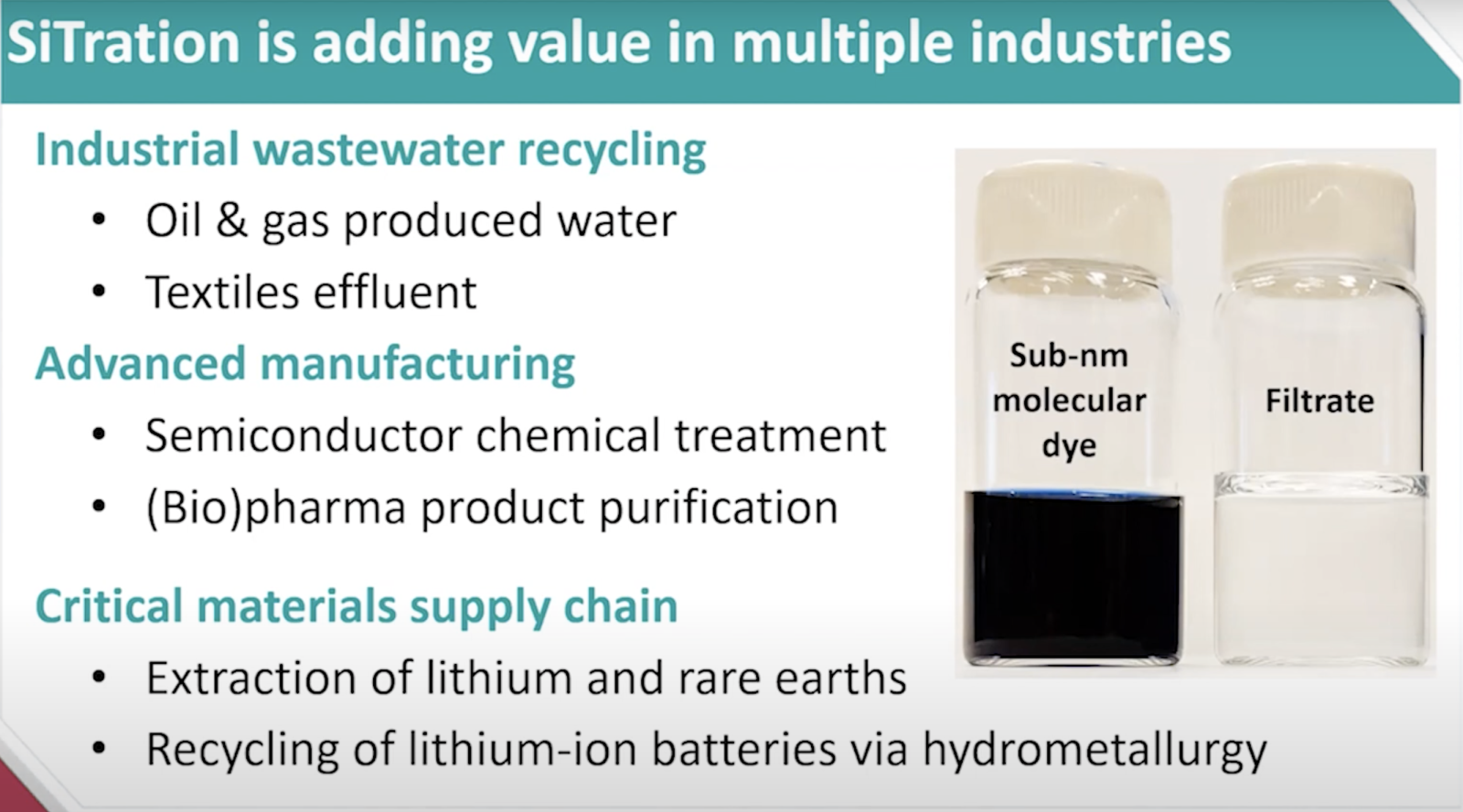News J-WAFS Solutions grant spinout SiTration is pioneering new separation processes for materials extraction
The company recently raised $2.35 million in pre-seed funding specifically for recycling electric vehicle batteries.
Carolyn Blais, J-WAFS January 25, 2023

Jeffrey Grossman, a professor in MIT’s Department of Materials Science and Engineering, received a 2015 J-WAFS Solutions grant to engineer a low-cost energy-efficient filter for desalination. Desalination technology relies on specially engineered membranes to remove salt from water, however over time organic foulants accumulate on the membranes, substantially reducing water flow and efficiency. Due to the chemistry of these membranes, they cannot be cleaned with conventional chlorine-based methods. The J-WAFS project enabled the development of nanoporous membranes with optimized surface chemistry that showed resilience to both cleaning chemicals and biofoulants. The team leveraged the improved permeability of graphene-based membranes to create a product that addresses a serious challenge for plant operators and manufacturing facilities. The Solutions grant also resulted in two spinoff companies, Via Separations and SiTration.
SiTration was co-founded by MIT alum Brendan Smith PhD ‘18 who was a part of the J-WAFS Solutions team. The company’s website notes: “Ultra-durable filtration membranes for efficient separations in the harshest environments.” The membranes are helping to reduce cost and resource consumption in industrial wastewater treatment, advanced manufacturing, and resource extraction of materials such as lithium, cobalt, and nickel from recycled electric vehicle batteries.
Smith, who is the CEO of SiTration, participated in MIT’s START.nano accelerator and the Activate Fellowship program to help launch the company. In July of 2022, SiTration raised $2.35 million in pre-seed funding, led by Azolla Ventures with participation from the MIT-affiliated E14 Fund. The funding is enabling SiTration to accelerate hiring and development of its breakthrough technology for the recovery of critical materials in the lithium-ion battery recycling process. “By replacing the chemical and thermal separation methods used in battery recycling today with an electrified approach, SiTration is unlocking ultra-efficient recovery of materials foundational to a more sustainable future,” said Smith.
In January of 2023, SiTration was highlighted in the Boston Globe as a promising, new climate tech startup. Matthew Nordan, General Partner at Azolla Ventures and member of SiTration’s board of directors, says he’s “optimistic about the potential for young companies like SiTration.”
“Our vision is to minimize impact and maximize circularity in the life cycle of critical materials such as lithium, cobalt and nickel.”
—Brendan Smith PD '18, PhD ‘18, and CEO of SiTration
